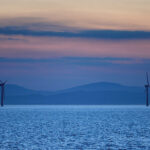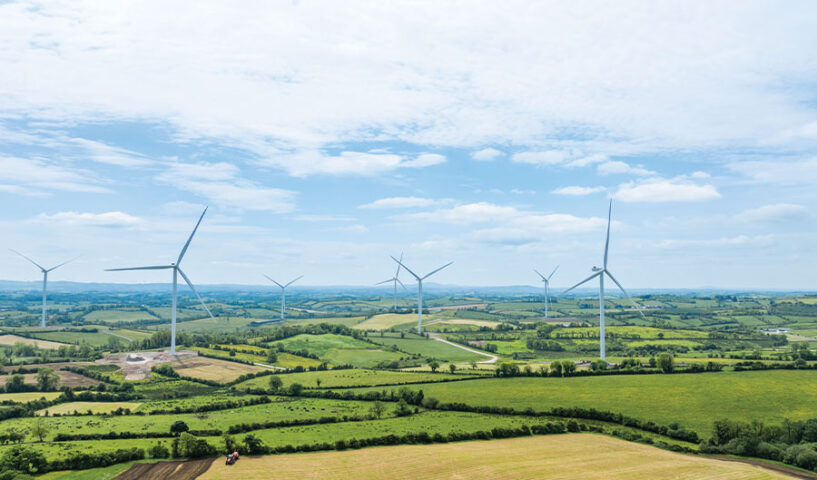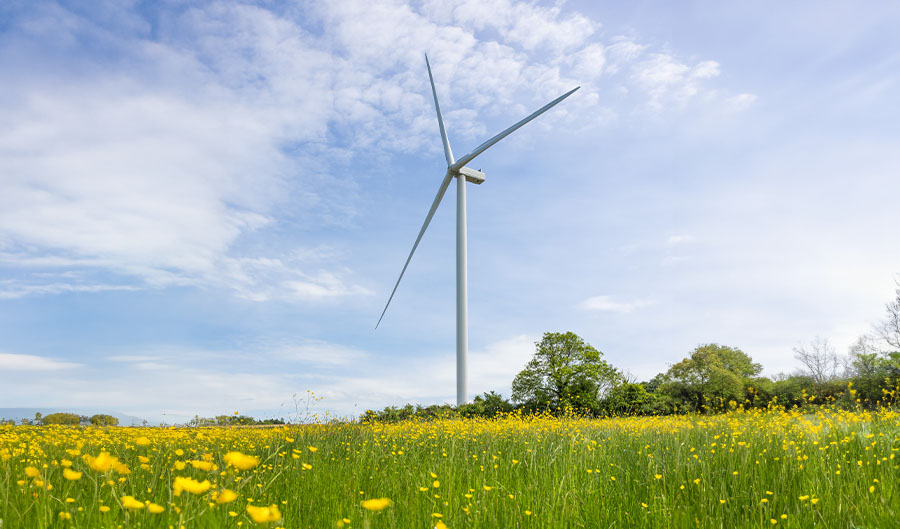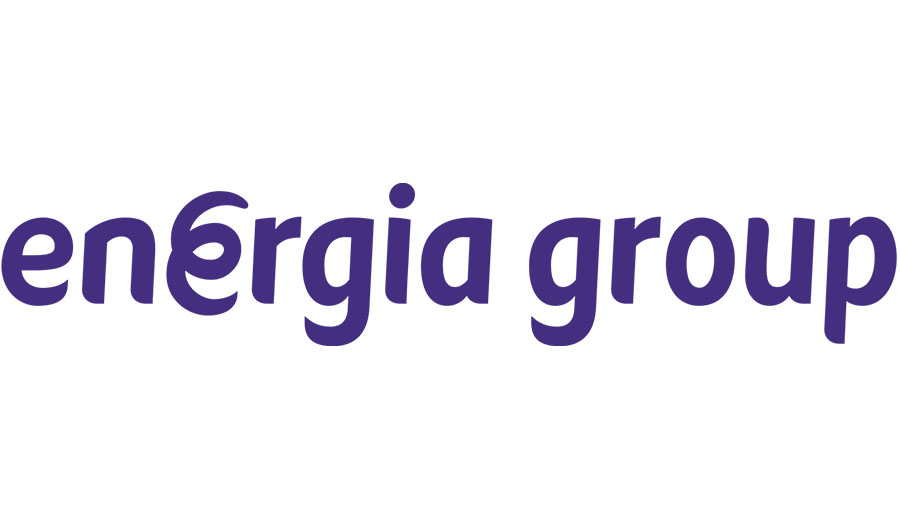
Powering Prosperity: Ireland’s Offshore Wind Industrial Strategy
4th October 2024
The role of long-duration electricity storage for net zero
4th October 2024Accelerating Ireland’s energy transition

Energia Group’s newest wind farm, Drumlins Park in County Monaghan, was delivered under a CPPA with Microsoft.
Energia Group is committed to powering the energy transition across the island of Ireland.
Ireland’s ability to achieve 80 per cent renewable electricity by 2030 seems challenging and the likelihood of reducing sectoral emissions by 75 per cent seems even more remote, based on recent reports from the Environmental Protection Agency (EPA) and the Climate Change Advisory Council (CCAC). But there are reasons to be optimistic, particularly given Ireland’s available renewable resources.
The energy transition presents significant opportunities for Ireland, not just in relation to energy and climate but it also offers an opportunity to progress wider economic and societal outcomes, such as competitiveness, investment, growth and employment. So while we should deliver on these targets to address climate change, we should also recognise that a failure to take action to accelerate progress at this point, would have broader consequences for our economy and society.
Energia Group is one of Ireland’s leading integrated energy companies, supplying almost 17 per cent of the island of Ireland’s total electricity requirements and we are responsible for approximately 21 per cent of the island’s total wind power.
We have a development pipeline of over 3,400MW of new renewable projects across wind, solar, hydrogen, and battery storage. Our strategy and approach to the energy transition provide us with a unique perspective from which to identify how the energy transition on the island can be accelerated.
The obvious starting point is with onshore wind and solar. These are well established renewable technologies that can be delivered at scale and at a competitive price. The results of the recent RESS 4 auction demonstrates this and it also suggests that the cost of achieving further progress was marginal.
However, while the four RESS auctions to date have delivered new capacity, the real accelerant for onshore wind and solar is the Corporate Power Purchase Agreement (CPPA) market. Our newest wind farm, Drumlins Park in County Monaghan, was delivered under a CPPA with Microsoft. We have two further wind farms currently in construction, as well as a significant near-term pipeline of onshore wind and solar projects that we expect will all be delivered under this CPPA Framework Agreement.
Notwithstanding the grid and planning challenges that appear to be ubiquitous in markets across the world, collaboration between renewable developers and large energy users offers an inherently more dynamic route to market than through state auctions. It is therefore important to ensure that a level playing field in policy is established and maintained and that we avoid reversion to a single-track route to market approach, where progress can be constrained by competition ratios and project development requires visibility of a pipeline of future auctions.
On the issues of grid and planning, there are also reasons to be optimistic that the pace of progress can be increased. The new Planning and Development Bill 2023, particularly if supported by a new Planning Framework, can accelerate the process for project consenting. Significant investment in the electricity grid is critical and, mirroring developments in the grid in Great Britain, the introduction of smart grid technologies could reduce the need for traditional investment in the network and increase efficiency, capacity, and the new renewable connections.
Linked to this, battery storage can also play a more significant role in supporting and accelerating the energy transition, if the signals, incentives, and market rules recognise the ability of batteries to address some of the challenges of operating a power system targeting 80 per cent of all demand being met by renewables. At Energia Group, we have one 50MW battery storage facility just outside of Belfast in Northern Ireland, and a strong pipeline of future projects that are focussed on longer duration storage.
A possible alternative to large volumes of battery storage is interconnection. The basic premise is simple, export electricity at times of surplus renewables and import it in times of need. However, that is not how markets work and given the undifferentiated characteristics of electricity from different countries, it simply flows to the region with the higher price, irrespective of the amount of available renewables in that country.
Furthermore, if such price differentials are systemic, the importation of large volumes of electricity will frustrate the development of new onshore and offshore renewables, as levels of dispatch down become prohibitive for new renewable investment.
This is not to suggest that interconnectors do not have a role to play in the energy transition but the far more obvious answer is to increase demand for the renewable electricity to match the level of ambition that has already been outlined in policy for new renewable capacity. In a world where demand for the so-called green electron is growing, so too therefore is the opportunity for Ireland to establish a competitive advantage in sectors where renewable electricity can be a determining factor for investment.
This is consistent with our strategic objective to power a new model of sustainable growth in Ireland. It is also consistent with the policy targets set by government, particularly when looking to the longer-term potential of offshore wind. A principal benefit of this outcome is that Ireland could export the resulting high value product of these investments, as opposed to exporting the opportunity for this to be done elsewhere.
There is an obvious need and clear opportunities to accelerate Ireland’s energy transition, and there are some reasons to be optimistic in relation to 2030. We recognise that this process can be transformative, with an abundance of renewable opportunity translating into long-term, sustainable growth opportunities and it is why we are committed to powering the energy transition across the island of Ireland.
For more information visit www.energia.ie


